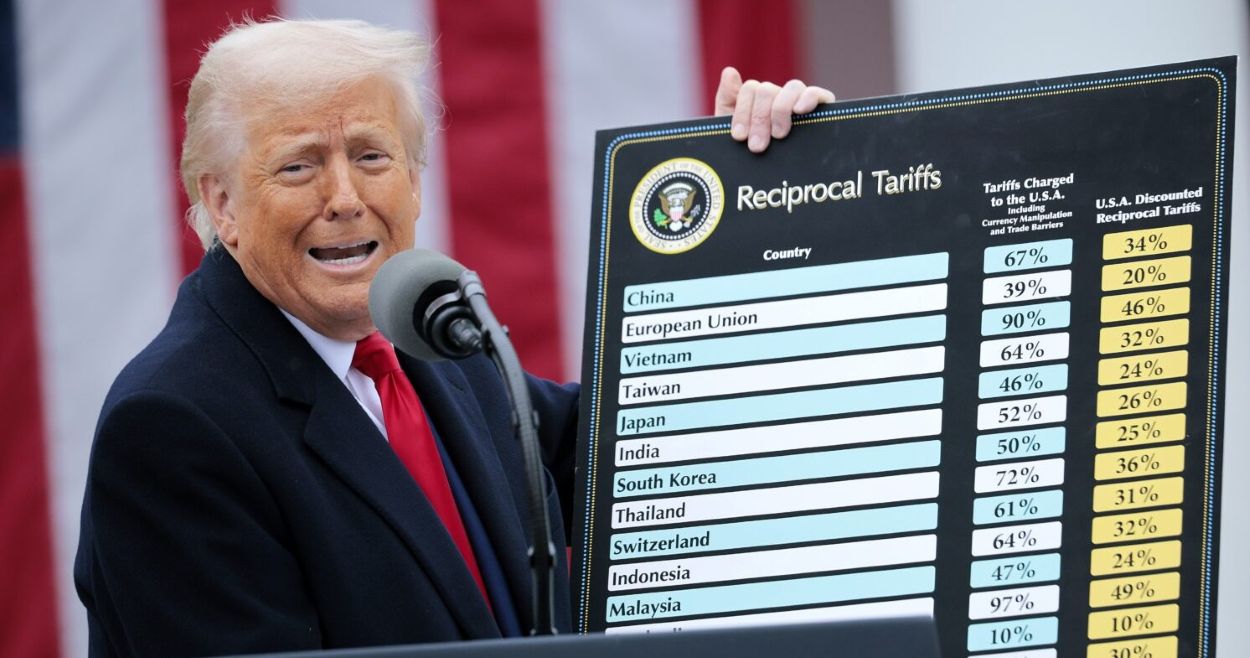U.S. President Donald Trump has announced a new round of increased import tariffs affecting 69 countries. Pakistan will face a 19% reciprocal tariff, which will take effect next week, just ahead of a Friday deadline for a trade deal.
An executive order has imposed higher import duty rates ranging from 10% to 41% on goods from 69 trading partners. Some nations had previously negotiated tariff reductions, while others did not have the opportunity to negotiate terms with the US administration. Products from countries not listed will be subject to a 10% tariff.
The President stated that despite ongoing negotiations, some partners “have offered terms that do not sufficiently address imbalances in our trading relationship or have failed to align with the United States on economic and national-security matters.”
Trump struck huge trade deals — but tariffs are about to go up on a huge swath of imports as Liberation Day tariffs hit https://t.co/VcU6OSqS1J pic.twitter.com/iqu75Etq5e
— New York Post (@nypost) July 31, 2025Country-Specific Measures: Canada, Mexico, South Korea, and India
- Canada: Tariffs on fentanyl-related goods will rise from 25% to 35% after Trump criticised Canada’s cooperation in curbing fentanyl trafficking into the US.
- Mexico: Granted a 90-day reprieve from a 30% tariff on many goods to allow further trade negotiations. Mexico agreed to eliminate numerous non-tariff trade barriers and comply with tariffs on steel, aluminium, copper, and certain automobiles.
- South Korea: Accepted a 15% tariff (down from 25%) as part of a new deal that includes a $350 billion investment pledge in US projects.
- India: Faces potential 25% tariffs following stalled talks over agricultural market access and concerns regarding India’s Russian oil purchases. India maintains protection of its labour-intensive farm sector despite domestic political backlash.
The introduction of these tariffs coincides with evidence of rising consumer prices in the US. Recent Commerce Department data shows notable increases in prices for home furnishings, durable household goods, recreational products, vehicles, clothing, and footwear—likely influenced by import duties.
BREAKING: US President Trump has signed an executive order imposing new “reciprocal” tariffs ranging from 10 to 41% on US imports from dozens of countries and foreign locations https://t.co/qEyHvlRlKc pic.twitter.com/KfwG3CG8LN
— Al Jazeera Breaking News (@AJENews) August 1, 2025Federal court judges have questioned Trump’s use of emergency powers under the 1977 International Emergency Economic Powers Act to justify these tariffs. The Court of International Trade ruled that such measures exceeded executive authority, and scepticism remains during ongoing appeals.
Additionally, Trump imposed a 50% tariff on Brazilian goods amid tensions over political prosecutions, but excluded key sectors such as aircraft and energy from heavy levies.
US officials have hinted at additional forthcoming trade deals but withheld details pending presidential approval. Trade talks with China continue, with a looming August 12 deadline for a durable tariff agreement following preliminary deals earlier in the year to ease escalating trade tensions.






